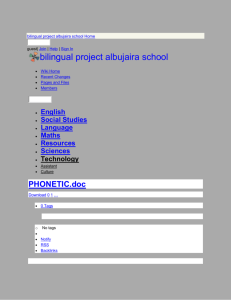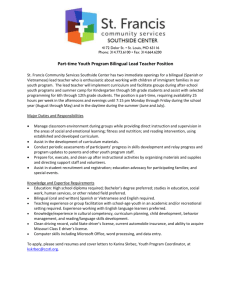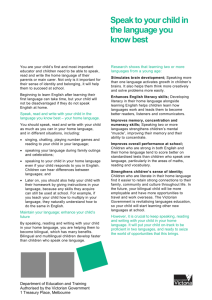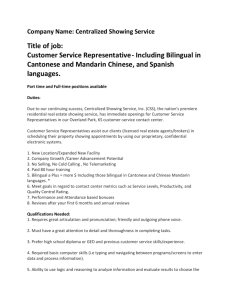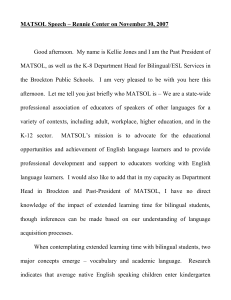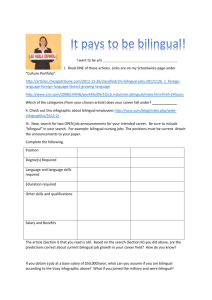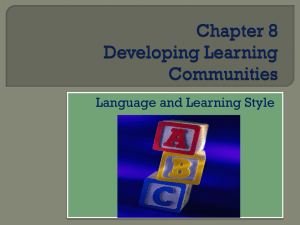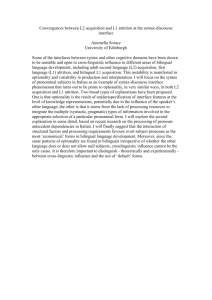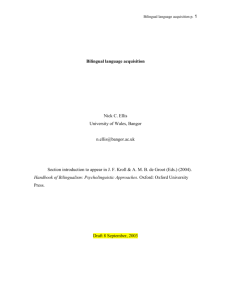Introducing project QuaLIBi : Quality of Language Input in Bilingual
advertisement
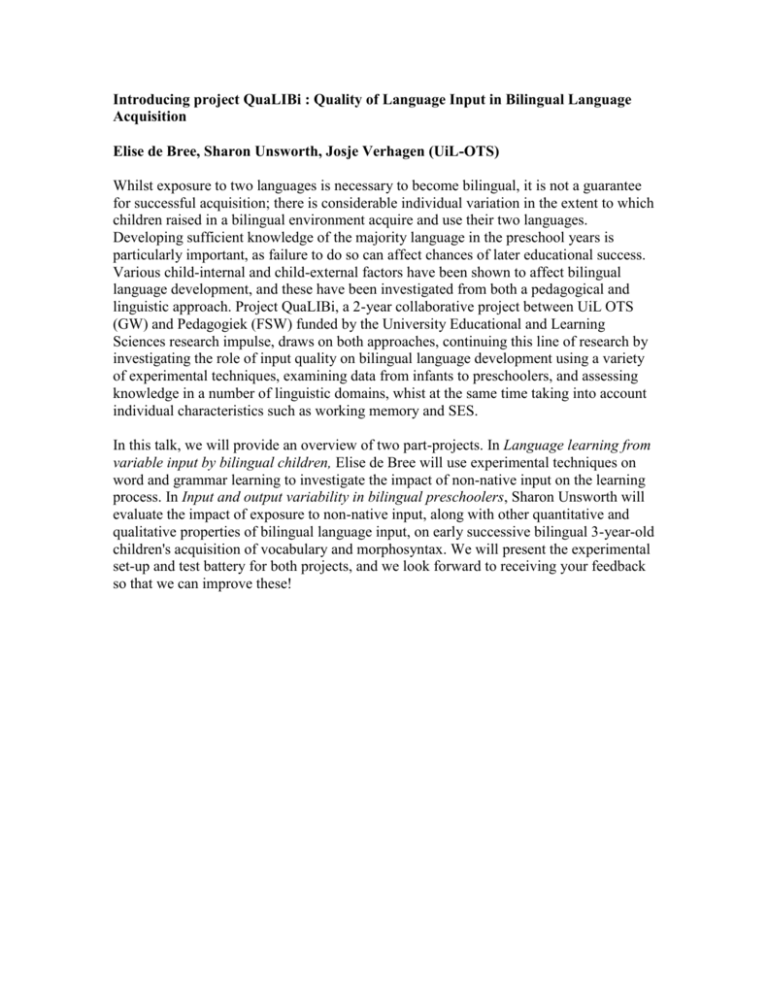
Introducing project QuaLIBi : Quality of Language Input in Bilingual Language Acquisition Elise de Bree, Sharon Unsworth, Josje Verhagen (UiL-OTS) Whilst exposure to two languages is necessary to become bilingual, it is not a guarantee for successful acquisition; there is considerable individual variation in the extent to which children raised in a bilingual environment acquire and use their two languages. Developing sufficient knowledge of the majority language in the preschool years is particularly important, as failure to do so can affect chances of later educational success. Various child-internal and child-external factors have been shown to affect bilingual language development, and these have been investigated from both a pedagogical and linguistic approach. Project QuaLIBi, a 2-year collaborative project between UiL OTS (GW) and Pedagogiek (FSW) funded by the University Educational and Learning Sciences research impulse, draws on both approaches, continuing this line of research by investigating the role of input quality on bilingual language development using a variety of experimental techniques, examining data from infants to preschoolers, and assessing knowledge in a number of linguistic domains, whist at the same time taking into account individual characteristics such as working memory and SES. In this talk, we will provide an overview of two part-projects. In Language learning from variable input by bilingual children, Elise de Bree will use experimental techniques on word and grammar learning to investigate the impact of non-native input on the learning process. In Input and output variability in bilingual preschoolers, Sharon Unsworth will evaluate the impact of exposure to non-native input, along with other quantitative and qualitative properties of bilingual language input, on early successive bilingual 3-year-old children's acquisition of vocabulary and morphosyntax. We will present the experimental set-up and test battery for both projects, and we look forward to receiving your feedback so that we can improve these!

